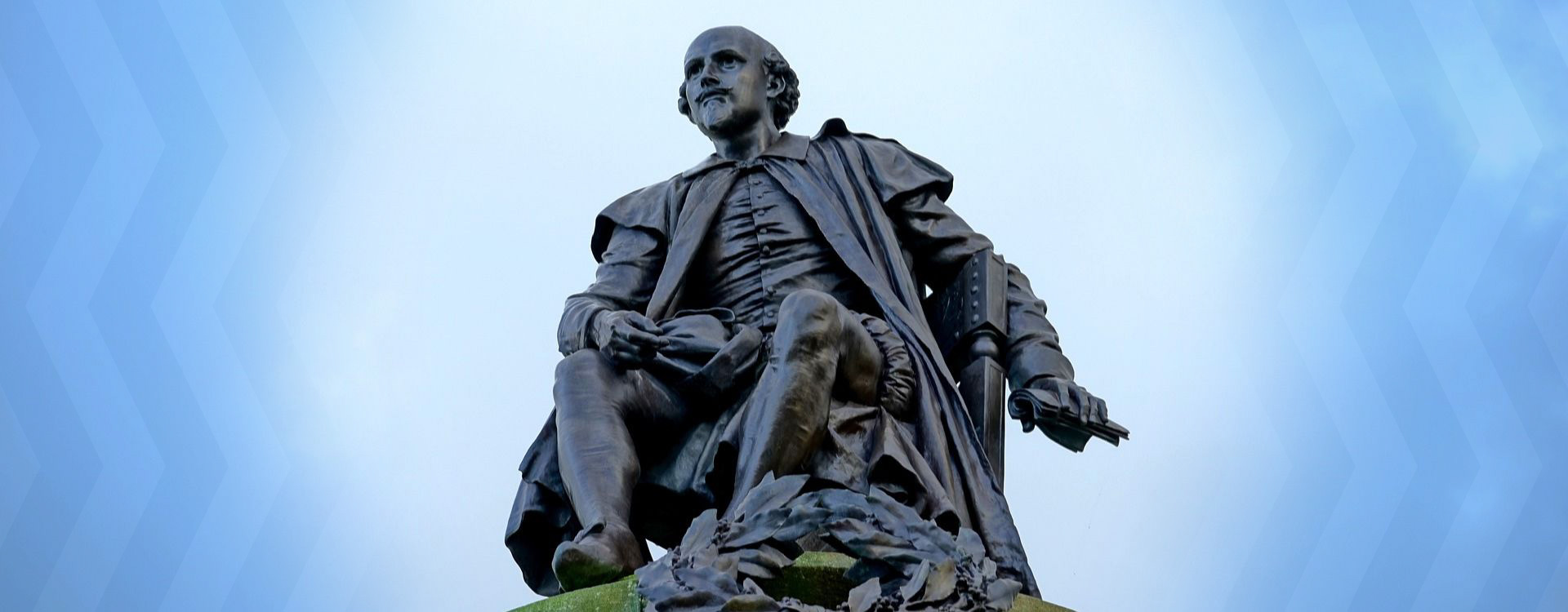It’s time to lose some weight—in your B2B marketing content
February 2, 2016
By Craig Clarke
January 5, 2024

The plays of William Shakespeare have captivated audiences for centuries with their engaging stories, complex characters, and profound insights into the human experience. Though the Bard wrote for audiences of the late 16th and early 17th centuries, his lessons remain relevant, even for today's B2B marketers.
Shakespeare and modern marketers share more common ground than one might expect. Both excel in language, psychology, and storytelling, showing that the fundamentals of audience connection have not drastically changed since the Elizabethan era. Understanding human motivations and creating compelling narratives are crucial, regardless of the medium.
Shakespeare's talents for capturing and keeping attention provide B2B marketers with valuable strategies to engage customers and promote their solutions effectively. By drawing on his narrative techniques, savvy communicators can craft messages that truly resonate.
Exploring Shakespeare's themes can help B2B tech marketers uncover timeless best practices for differentiating their brands, building customer loyalty, and driving growth in a crowded marketplace—where it sometimes feels like the groundlings are always ready with a rude comment.
Few images capture the tragedy of relationships broken by poor communication more vividly than the "star-cross'd lovers" of Verona. Romeo and Juliet's secretive relationship led to misunderstandings and tragic consequences. In business, open communication is crucial for strategic partnerships, ensuring everyone is on the same page.
In today's B2B tech landscape, collaboration is essential. Success comes from alliances that blend their unique strengths into seamless solutions. Strategic partnerships that integrate digital and cloud tools showcase the power of effective B2B collaboration. We're already seeing the business equivalent of the Capulets and Montagues set aside their differences through smart cross-company partnerships!
As Shakespeare's final play opens, Prospero and his compatriots find themselves shipwrecked on an island. A hasty and forced marketing strategy may get similarly tossed in turbulent waters. Unpredicted challenges like supply chain issues, changes in privacy laws, or even global pandemics, can throw companies off course. Adaptability is key to navigating these disruptions because even the best marketers can't foresee every twist.
Enter contingency planning, stage right. By preparing for a variety of scenarios, you ensure no single disruption derails your long-term success. Spotting changes early and adapting swiftly is the ultimate insurance policy for stormy business climates.

Among Shakespeare’s array of characters, few match the compelling oratory of King Henry in Henry V. With unforgettable speeches like the “band of brothers” and his rousing St. Crispin’s Day address, Henry inspires his outnumbered troops to overcome the odds and defeat the stronger French forces at Agincourt.
Now, that’s messaging with impact!
For B2B technology marketers today, crafting a persuasive value proposition is crucial. Move away from the usual corporate-speak and dry technobabble. Instead, embrace vivid storytelling that addresses real customer problems.
Take a cue from King Henry: Win mindshare with bold expression and clarity. Keep your positioning simple and authentic, free from unnecessary jargon. Then it’s much easier to rally support behind your solutions.
One element permeates all the Bard’s best works: immersive storytelling. Nowhere is his skill at crafting setting, character, and narrative arc more evident than in Twelfth Night, or What You Will. This comedic, tale of misdirection and mistaken identities captivates with its relentless energy.
For B2B technology marketers, this level of creativity is inspiring. Bland, spec-heavy whitepapers can’t compete with the persuasive power of stories that show how these improved features actually solve problems better.
Instead, draw from Shakespeare’s plotting to design customer journeys as intriguing quests. Present pain points through relatable characters that key segments can identify with, and demonstrate resolution through product application. Engage audiences by helping them envision how their lives could be improved with your solution.
Shakespeare's techniques for captivating audiences—vivid storytelling, inclusive language, and emotional connection—are timeless. By adopting these strategies, B2B marketers can move beyond tired industry jargon and communicate in more concise and engaging ways.
As highlighted earlier, Shakespeare's works can inspire more than just high school essays or highbrow entertainment. His characters and narratives offer valuable lessons for modern marketers. While terminology and work settings change, core human motivations remain constant. Even in our data-driven world, communication, trust, and understanding are key.
If it worked for Shakespeare, it can work for B2B marketing. Although 400 years have passed, people still love a good story. Embrace these lessons from the Bard of Avon, and give your next "sales play" the chance to earn a standing ovation!
We take pride in a team loaded with smarts, wit, and ideas. If you'd like to have a smarter, wittier inbox filled with ideas each month, subscribe here to the MarketReach Blog, and we will let you know when there is something new you might like!

Need us now? Just want to learn more? We’d love to talk.